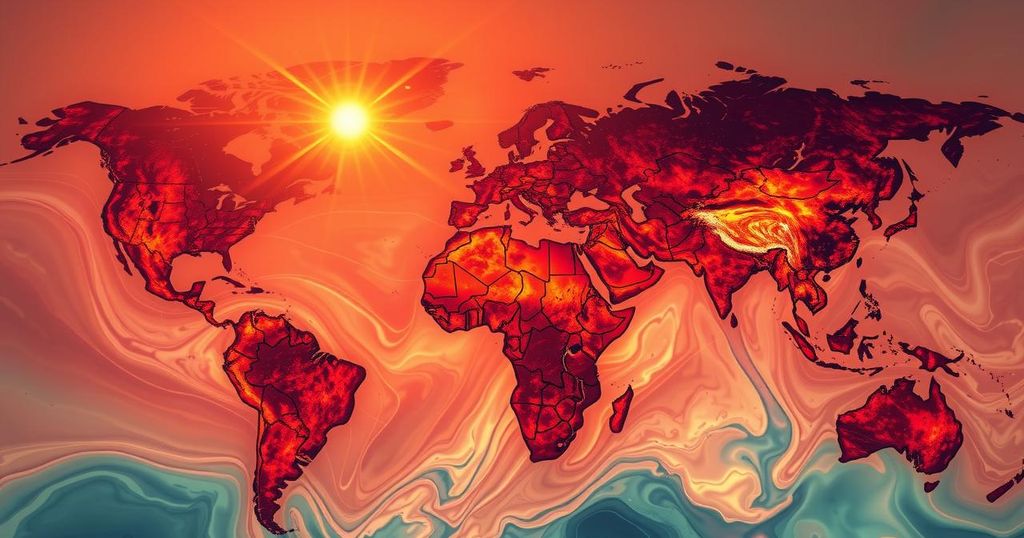2024: A Year of Escalating Extreme Weather Events Due to Climate Change

Extreme weather events surged in 2024, with Climate Central reporting an additional 41 days of dangerous heat due to climate change. Small island states and developing countries faced the most severe impacts, including health risks exacerbated by droughts and floods. Recent studies indicate increasing wind strength and rainfall in storms, linked largely to human-induced global warming, emphasizing the need for urgent emission reductions.
In 2024, extreme weather phenomena reached alarming levels as a consequence of rising global temperatures, which have increased by 1.3°C due to human activities. The year has been characterized by notably severe heatwaves, droughts, wildfires, floods, and storms, leading to widespread fatalities and the dislocation of millions of individuals. Now, new research from the non-profit organization Climate Central has indicated that climate change contributed an additional 41 days of extreme heat across the globe throughout the year.
The most adversely affected regions include small island nations and developing countries, which experienced heightened health risks associated with the excessive heat. Notably, climate change has emerged as a significant factor in various devastating events, eclipsing even the influence of El Niño. For instance, the renown Amazon rainforest encountered unprecedented drought conditions, resulting in profound losses in biodiversity and threatening its crucial role as a carbon sink.
Additionally, floods have wreaked havoc in numerous countries, including Sudan, Brazil, and areas within the Southern Appalachians. Climate Central’s analysis identified that out of 16 floods examined, 15 were attributable to rainfall exacerbated by climate change. The inadequacies in emergency evacuation and flood protection measures further underscored the grim consequences of these disasters.
Ocean temperatures have also risen, leading to intensified storms, such as Hurricane Helene and Typhoon Gaemi. Recent climate studies reveal that tropical storms are now characterized by stronger winds and heavier rainfall due to global warming. Research determining the strength of Atlantic hurricanes between 2019 and 2023 suggests they were one category stronger than they would have been if not for human actions.
Climate Central asserts that these escalating disasters amplify the urgent need to prioritize emission reductions and the transition from fossil fuel dependency to more sustainable energy practices.
Climate change poses a significant threat to global weather patterns, resulting in increasingly severe and frequent extreme weather events. The consequences of a mere 1.3°C rise in temperature, attributable to anthropogenic emissions, manifest in heightened risks to human health and environmental stability. Understanding the interplay between climate change and natural disasters is vital for developing effective mitigation and adaptation strategies in response to the ongoing climate crisis. Organizations such as Climate Central contribute to this understanding through rigorous scientific analysis, highlighting urgent issues and the necessity for urgent climate action.
In summary, the findings from Climate Central underscore the alarming escalation of extreme weather events in 2024 due to climate change, which has added 41 additional days of heat globally. With small island nations and vulnerable communities bearing the brunt of these impacts, it is imperative to recognize the critical role of human activity in driving these phenomena. Urgent action is required to reduce greenhouse gas emissions and transition to sustainable energy solutions to mitigate future risks.
Original Source: www.energylivenews.com





